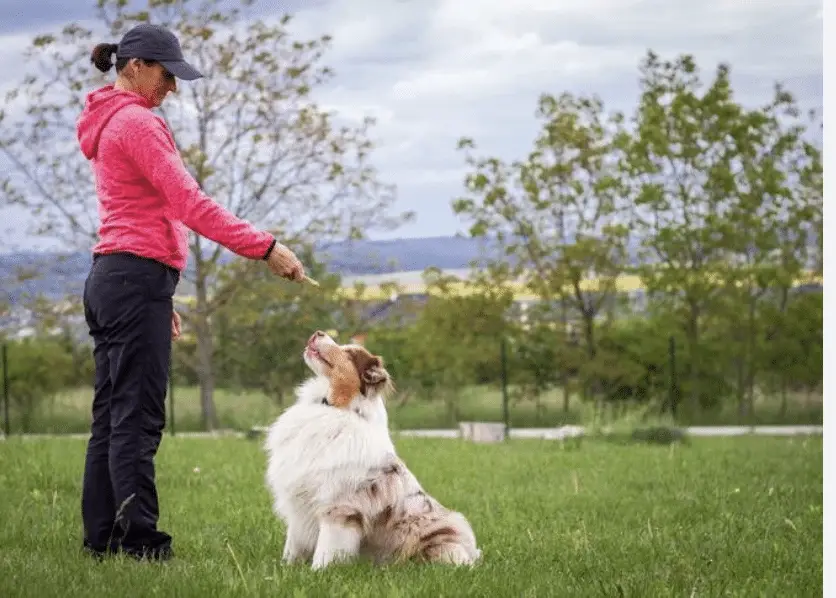Dogs, our loyal companions, come in various shapes, sizes, and personalities. Each breed possesses distinct characteristics and traits that make them unique. These differences are a result of generations of selective breeding to perform specific tasks or fulfill particular roles. The power of breed-specific dog training cannot be over stated. Understanding and appreciating these breed-specific traits can significantly impact the success of your training efforts. Welcome to the world of “Breed-Specific Dog Training” – a method that harnesses the innate qualities of each breed to optimize training outcomes and strengthen the bond between humans and their canine friends.
Why Breed-Specific Dog Training Matters
As any experienced dog trainer will tell you, a one-size-fits-all approach to training doesn’t always yield the best results. Each breed has been developed for specific purposes, and these inherent traits shape their behavior, learning styles, and responses to training methods.
For instance, herding breeds like Border Collies and Australian Shepherds possess a strong instinct to gather and control livestock. Hounds, such as Beagles and Bloodhounds, have a keen sense of smell and a natural inclination to follow scents. Working breeds like German Shepherds and Dobermans are often loyal, protective, and eager to learn. Understanding these inherent traits can be the key to unlocking your dog’s potential and making training a more enjoyable experience for both of you.
Breed-Specific Training Strategies
-
Play to Their Strengths
Use your dog’s breed-specific traits to your advantage during training. If you have a retriever, incorporate games of fetch into obedience training. For herding breeds, simulate herding behaviors with appropriate toys or activities. This not only keeps training engaging but also taps into their natural instincts, making the learning process more intuitive.
-
Patience and Consistency
Regardless of the breed, all dogs benefit from patience and consistent training methods. However, some breeds may take longer to grasp certain commands or behaviors due to their independent nature or strong instincts. Don’t get discouraged; be patient and keep reinforcing positive behaviors.
-
Socialization
Each breed may have varying degrees of sociability and temperament. Socialization is crucial for all dogs but may need to be approached differently for different breeds. For example, socializing a friendly Labrador Retriever might involve playful interactions with various dogs, whereas socializing a Shih Tzu might focus on gradual exposure to new environments and stimuli.
-
Exercise and Mental Stimulation:
Some breeds have high energy levels and require plenty of physical and mental stimulation. A bored dog can quickly become a mischievous one. Incorporate breed-specific activities and toys that cater to their needs, such as puzzle toys for intelligent breeds or scent games for hounds.
-
Positive Reinforcement
Positive reinforcement works well for all breeds, but it’s especially important for breeds sensitive to harsh treatment. Celebrate and reward their successes with treats, praise, or playtime. This encourages them to repeat the desired behaviors willingly.
-
Avoid Overgeneralizing Stereotypes
While breed-specific traits provide insights into a dog’s behavior, it’s essential to remember that individual dogs within a breed can still vary significantly in temperament and personality. Avoid overgeneralizing stereotypes and tailor your training approach to your unique canine companion.
Benefits of Breed-Specific Training
- Enhanced Bond: By acknowledging and embracing your dog’s breed-specific traits, you create a deeper understanding and connection with your pet. Recognizing their instincts and working with them creates a mutual respect that strengthens your bond.
- Improved Training Efficiency: Instead of fighting against your dog’s nature, you are aligning your training methods with their instincts. This can lead to quicker and more effective results, making the training process smoother and more enjoyable.
- Reduced Behavioral Issues: Addressing breed-specific needs can help prevent behavioral problems caused by frustration or unfulfilled instincts. A well-stimulated and engaged dog is less likely to develop destructive behaviors.
- Confidence Building: Training your dog to perform tasks that align with their natural inclinations can boost their confidence and sense of accomplishment.
Conclusion
In conclusion, embracing breed-specific dog training is a powerful tool for both dog owners and their furry companions. Recognizing and understanding the unique traits of each breed allows us to tailor our training methods to match their individual needs, unlocking their full potential and fostering a strong and healthy human-canine bond. By combining patience, positive reinforcement, and knowledge of breed-specific traits, you set your dog up for a lifetime of success and happiness. Remember, every dog is unique, and embracing their individuality is the key to a successful training journey. Happy training! Have questions? Give us a call at Highland Veterinary Hospital.




